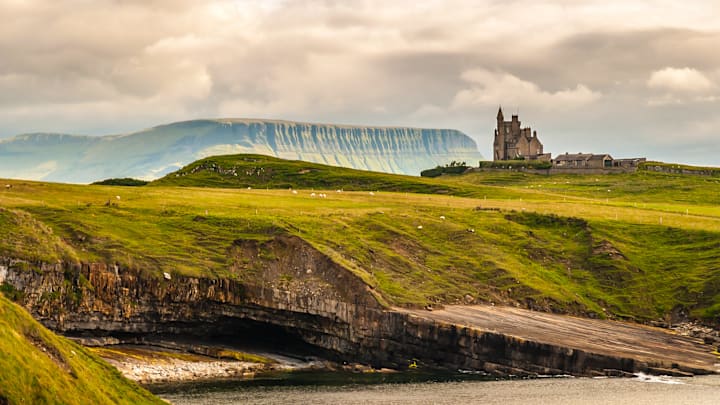Ireland is known for its vast, vibrant green landscapes, making it easy to see why the country has been dubbed the Emerald Isle. But the phrase’s origins weren’t the result of a splashy tourism campaign. Ireland’s nickname actually comes from 18th-century literature, thanks to the work of a of a man also famous for his role in Irish politics and activism.
William Drennan, born in Belfast in 1754, was a physician who was involved in found the Society of United Irishmen, which sought equal political representation in Ireland and opposed integrating Ireland with Britain. He later moved to Dublin, where he was living in 1795 when he published a poem that has become best known as “When Erin First Rose” (a 1798 printing of the poem lists it under the title “Erin, To Her Own Tune” [PDF]). The name Erin in the poem’s title is another name for Ireland itself; it’s the English language version of the ancient Irish Éire.
The poem initially refers to Ireland as the “em’rald of Europe” that “sparkled and shone.” A direct reference to Ireland as the Emerald Isle appears within one of the poem’s later stanzas:
“Arm of Erin, be strong! but be gentle as brave;
And uplifted to strike, be still ready to save;
Let no feeling of vengeance presume to defile
The cause of, or men of, the Emerald Isle.”
The poem was the first written work to put the phrase Emerald Isle in print. Drennan’s use of the term marked the beginning of its associations with Ireland—an association that grew ever stronger as the years went on, even as many people remain unaware of “Erin, To Her Own” itself.

There has been some confusion over whether Drennan actually coined the expression. Some sources state he acknowledged first hearing the phrase in a song. But this may be a misunderstanding of comments he made in an 1815 collection of his poetry, in which he writes: “a poetaster reclaims the original use of an epithet — The Emerald Isle, in a party song, written without the rancour of party, in the year 1795. From the frequent use made of the term since that time, he fondly hopes that it will gradually become associated with the name of his country, as descriptive of its prime natural beauty, and its inestimable value.” (The passage is written in the third person, but the person Drennan refers to is himself.)
Today, it can be safely said that Drennan’s desire to see the expression become associated with his country has been more than fulfilled. Emerald Isle is inextricably intertwined with Ireland itself, a connection that continues to endure almost 230 years after he enshrined the phrase in print. The nickname is also tied to Drennan long after his death, as evinced by the epitaph on his tombstone:
“Pure, just, benign, thus filial love would trace
The virtues hallowing this narrow space
The Emerald Isle may grant a wider claim
And link the patriot with his country’s name.”
